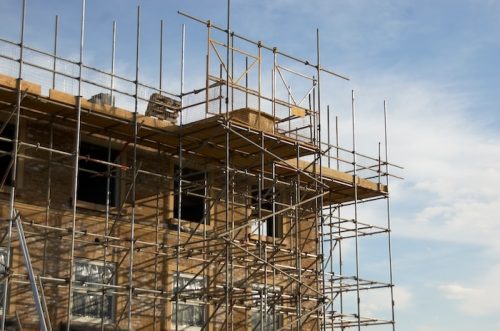
Building your own home is one of the most rewarding projects you can take on. From choosing the plot to designing every last detail, a self-build gives you the freedom to create a space that fits your lifestyle, budget, and future plans. But alongside the creative freedom comes risk and it’s crucial to have the right self-build insurance in place from day one.
If you’re planning a self-build, here’s what you need to know about protecting your investment and making smart choices that add value, especially if you plan to sell down the line.
What Insurance Do You Need for a Self-Build Project?

Self-builds involve multiple stages, each with different risks. Standard home insurance won’t cover you during construction, which is why specialist self-build insurance is essential. Depending on the scale and structure of your build, you may need:
Contract Works Insurance
Covers the property while it’s under construction, including damage from fire, flood, storms, theft, and vandalism. It also protects any work that’s already been completed.
Public Liability Insurance
Covers injury or damage to third parties, such as neighbours, visitors, or trespassers who may enter the site.
Employers’ Liability Insurance
If you’re hiring tradespeople directly, rather than through a contractor, you may be legally required to have this in place. It protects you if a worker is injured on site.
Tools, Plant and Equipment Insurance
Covers your tools, machinery, and hired-in plant that might be stolen or damaged during the build.
Structural Warranty / Latent Defects Insurance
Once your home is complete, a structural warranty protects against major defects in design, materials, or workmanship. This is a big selling point if you plan to sell in the next 10 years, as most mortgage lenders require it for new homes.
At Construction Insure, we’ll help you build the right policy around your project – so nothing is left exposed.
How to Add Value to Your Self-Build (and Where to Save)
Whether you’re building your forever home or something to sell for profit, these decisions can have a big impact on your property’s future value.
Invest In: Location and Plot
You can change the house but not where it sits. A good plot in a sought-after area will always hold value. Prioritise:
- Transport links
- School catchments
- Privacy and views
- Drainage and flood risk (a big factor for insurers and buyers)
Invest In: Energy Efficiency
Buyers are increasingly drawn to eco-friendly homes. Investing in high-quality insulation, air source heat pumps, solar panels, and energy-efficient windows can boost both your EPC rating and your selling price.
Some lenders also offer green mortgages, which could make your property more appealing to buyers.
Invest In: Smart Layout and Storage
Think about how people actually live. Open-plan kitchen-diners, ground-floor WCs, and flexible spaces (like home offices) appeal to a wide range of buyers. Well-designed storage, utility rooms, and a dedicated entrance space can also set your home apart.
Save On: High-End Finishes (If Selling Soon)
It’s tempting to go all-in on designer kitchens or luxury fittings, but unless you’re building your dream home to live in long-term, these won’t always return their cost in a sale. Go for durable, neutral, mid-range options that allow buyers to put their own stamp on things.
Save On: Over-Specification
Bigger isn’t always better. A well-designed three-bedroom home with great flow, light, and finishes can be worth more than a four-bed that feels cramped or poorly laid out. Focus on liveability, not just square footage.
Save On: Custom Features That Limit Appeal
A wine cellar might be your dream, but not every buyer will want one. Keep unique features flexible, or avoid over-personalising spaces if you plan to sell within a few years.
Planning to Sell? Think Like a Buyer

If resale is on your mind, think about what today’s buyers want:
- Fast broadband and smart tech integration
- Off-road parking or EV charging
- Low running costs and high EPC ratings
- Modern kitchen and bathroom layout
- Quality finish, especially in high-traffic areas
Adding a 10-year structural warranty is also a major plus – buyers and lenders alike will want to see it.
Let Construction Insure Support Your Self-Build
We specialise in insurance for construction professionals, developers, and private clients, including first-time self-builders. We’ll walk you through the risks, help you choose the right cover, and keep things simple from planning to handover.
We can help you with:
- Self-build insurance packages
- Structural warranties and latent defects insurance
- Employer and public liability cover
- Site plant and tool cover
We’ll also make sure you’re not paying for cover you don’t need and that you’re not left exposed where it counts.
Planning a self-build?
Get in touch today for expert advice and a tailored quote that protects your project, your budget, and your future resale value.

